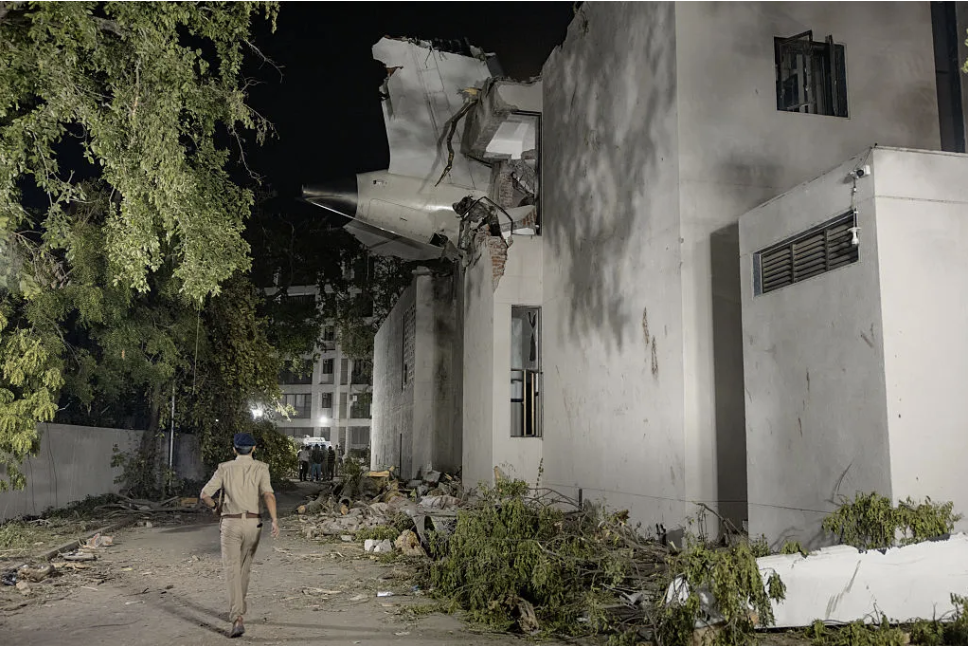Air India Black-Box Recording Reveals Captain Likely Cut Fuel Switches Off, Killing 260
Black-box voice recordings from the cockpit of Air India Flight 171, which crashed and killed 260 people on June 12, indicate that Captain Sumeet Sabharwal likely turned off the switches controlling fuel to the plane's engines.
In the recordings, you can hear Clive Kunder, the younger co-pilot who was actively flying the plane at the time, questioning why the fuel had been cut off.
Sabharwal denies doing so, but remains calm despite the obvious repercussions.
He then switches the fuel back on about 10 seconds after it turned off — too late for the plane to recover. Experts note that it is a 3-step process to turn the switches from "RUN" to "CUTOFF," a safeguard that makes an accidental switch unlikely.
The crash killed all but one of the 242 people on board, along with 19 people on the ground.
INSIDE THE FLIGHT
The Boeing 787 Dreamliner crashed approximately 32 seconds after takeoff from the Ahmedabad airport in India.
Sabharwal, 56, had been flying since the early 1990s, inspired by his father who served as a bureaucrat in India’s civil aviation ministry.
He trained at a prestigious flight school in India. One of his classmates and friends, Kapil Kohal, told the Wall Street Journal that Sabharwal was polite, never cursed, never drank alcohol, and spoke softly.
Kunder, in his early 30s, attended flight school in Florida at 19 years old and was hired by Air India in 2017.
The two pilots' exchange after takeoff was noted in a preliminary report released last week by India’s Aircraft Accident Investigation Bureau. The report did not identify which pilot made each statement, nor whether the actions were accidental or deliberate.
While the report did not rule out design flaws, it also noted no immediate actions for the aircraft or engine manufacturers, Boeing and General Electric. The report noted the involvement of medical and psychology experts in the ongoing investigation.
WHAT’S NEXT
The early findings have led some U.S. officials to privately say there should be a criminal review of the events. U.S. officials who have been briefed on the investigation have reportedly expressed frustration over delays in the release of crash data.
In response to reporting on the black-box recordings, the AAIB said Thursday, "We urge both the public and the media to refrain from spreading premature narratives that risk undermining the integrity of the investigative process," adding that, “at this stage, it is too early to reach to any definite conclusions.”
It can take years to fully investigate plane crashes, and new findings can contradict earlier reports.













